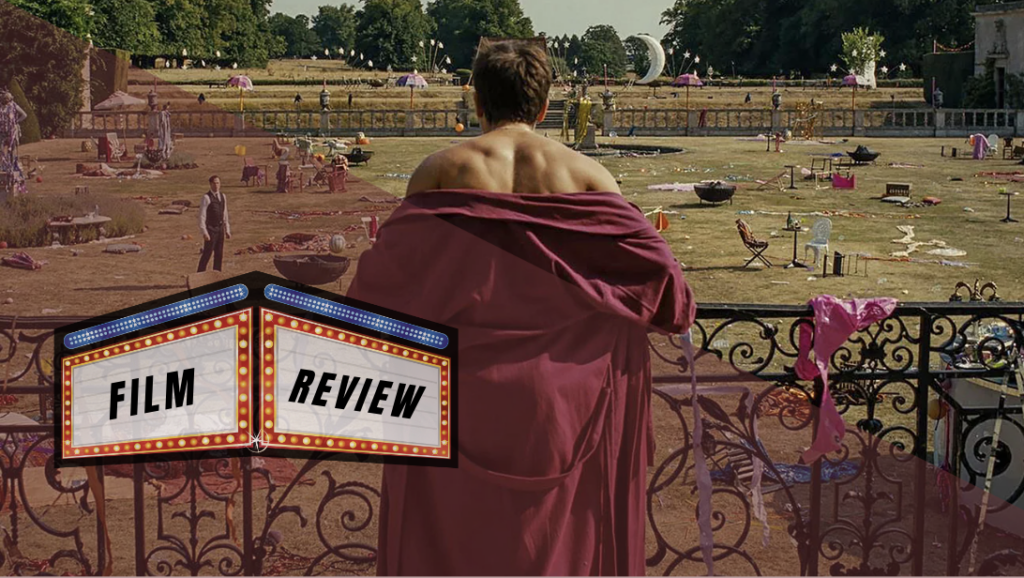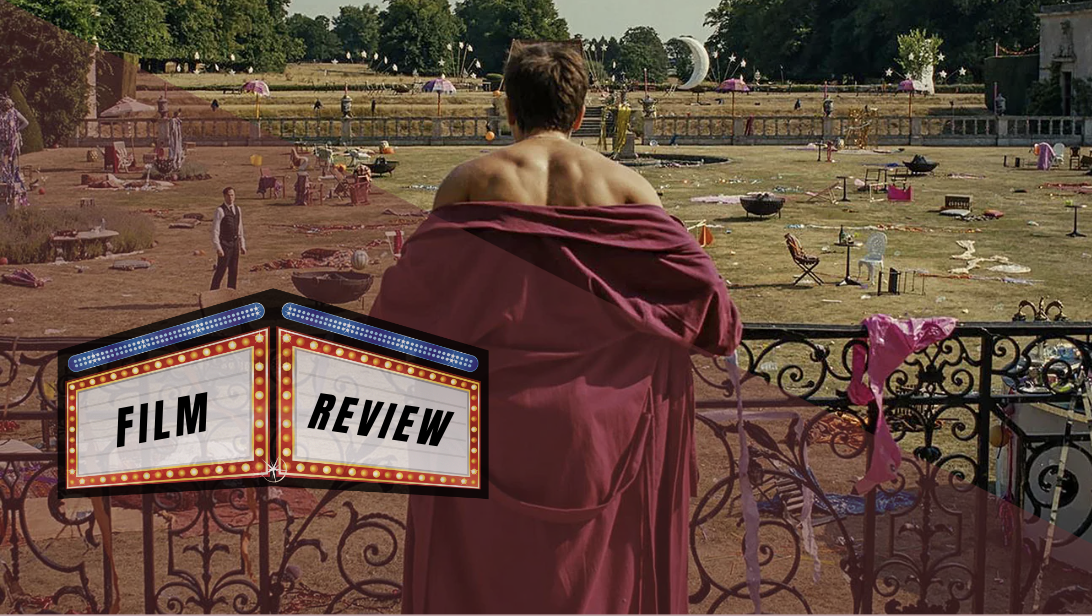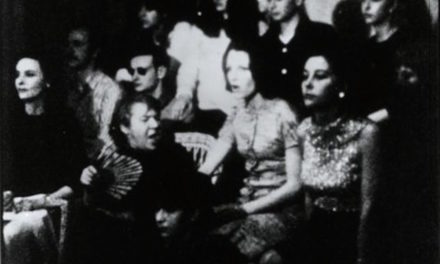
(Photo Manipulation by Nathan Rubin)
“Saltburn” unravels a captivating tale of affluence and illusion, inviting the audience into its enigmatic world. Academy-Award-winner Emerald Fennell’s newest film, released in select theaters on Nov. 17 and widely on Nov. 24, plunges the audience into a psychological thriller of opulent deceit. The movie stars Barry Keoghan, Jacob Elordi and Rosamund Pike and weaves a complex tale of desires within the extravagant world of the fictional Catton family. The Cattons are rich socialites who lived in the small British town of Saltburn where they resided in their inherited mansion with unending rooms.
Fennell masterfully unravels the facades of affluence, exposing the characters’ inherent flaws and transactional natures. Amidst this grandeur and surrealism, Oliver (Barry Keoghan) stands out. His unassuming presence slowly evolves into a profoundly unsettling character throughout the film. Oliver’s journey reveals a chilling reality: The most perilous emotions are often hidden under a guise of simplicity. “Saltburn” is a riveting exploration of the darkest corners of human desire and deception.
Fennell skillfully blends the allure of an early 2000s English summer with a retro 1960s essence, painting the scenes with a rich color palette that highlights splendid art, pristine skies and elegant fashion. The luxurious estate in Saltburn, the film’s central setting, contrasts starkly with the intricate emotional landscape of its characters. The house seems endless with beautiful art and color on every wall, while the Cattons have shallow and pretentious personalities. The film’s meticulous attention to detail, from the sophistication of high-society parties to the disorder of personal spaces, not only emphasizes the themes of wealth and class disparities but also delves into the characters’ emotional struggles. Cluttered rooms and personal belongings splayed across floors with careless abandon serve as a visual metaphor for the characters’ inner chaos and secrets, juxtaposing their polished public facades against their private, disordered realities.
In a roundtable interview on Nov. 15 with The Emory Wheel and other college publications on the newly released movie, Fennell discussed the intricate mise-en-scene of “Saltburn,” emphasizing its cultural and emotional depth.
“It’s impossible to make a film that lives outside of our popular culture,” Fennell said. “Everyone who comes to watch a movie comes to it with their own library of movies, books and experiences.”
The director further elaborated on drawing from the British Gothic genre, complete with the trope of the lavish estate akin to “The Great Gatsby” (2013), where a narrator is introduced to a life-changing environment.
Fennell and cinematographer Linus Sandgren aimed for “Saltburn” to “work as a silent movie,” focusing on emotional understanding through mise-en-scene, camera movement and lighting. She relished in weaving cultural references into the film, like the Minotaur symbolizing mortality, and exploring themes like identity and social constructs. Fennell’s goal is to create a story that, while allegorical, forms an emotional connection, acknowledging its crafted nature.
“Saltburn” unfolds as an epic narrative filled with surprises and a mounting sense of unease for its audience. The story begins with the affluent Catton family, whose questionable decisions highlight their shallowness and monstrous wealth. In stark contrast stands Oliver, a straightforward scholarship student living a life of modesty. However, as the plot progresses, Oliver’s true nature emerges from the shadows — a person with dark desires, willing to take extreme measures to achieve his goals. His complex actions are both confusing and terrifying, embodying the intricate nature of love and hate. He harbors feelings for Felix Catton (Elordi), showcasing an alarming emotional dissonance of deep affection and intense loathing. This intricate interplay between characters enhances the film’s exploration of love’s complexities and the disturbing undercurrents within human relationships.
In the latter half of “Saltburn,” Oliver struggled to make decisions due to his confused personality, but it is always premeditated. Earlier, he looked like a normal, anxious college student who didn’t want to put himself out there. Keoghan did the role of Oliver justice with his deceitful acting and cunningness. At the same time, Elordi excelled at his role as an elite socialite. While Felix does questionable things in almost every scene, he never stands as a villain — the villain is always Oliver. This result goes on to show how well Keoghan and Elordi complemented each other’s acting style.
When Fennell was asked about how her experience at the University of Oxford (U.K.) inspired the movie being set at the same university, she emphasized the transformative nature of college. She noted that being away from familiar environments allows individuals to redefine themselves, which is particularly relevant to themes in “Saltburn”, touching on aspects pertinent to college students and young adults.
“It’s absolutely a film about love,” Fennell said. “It is specific to the time in your life when you are first in the adult world unsupervised, when you’re first away from the people who’ve known you your whole life, and you can be the person you want to be.”
The film, then, is not just about romantic encounters but also self-discovery and how young adults envision and reinvent themselves in newly-inhabited environments. This theme resonates with the popular college-age experience of shaping identity, exploring masculinity, queerness and the impact of one’s surroundings on personal growth.
“Saltburn” is a cinematic journey that intricately intertwines a rich visual narrative with deep psychological exploration. Fennell’s direction brings to life a story that transcends the boundaries of traditional filmmaking, offering a unique blend of visual splendor and emotional depth. The film not only captivates its audience with its aesthetic beauty but also provokes thoughtful reflection on themes of identity, wealth and the complexities of human emotion. It stands as a testament to Fennell’s prowess as a filmmaker and a storyteller, marking “Saltburn” as a compelling addition to the contemporary cinema canon that will resonate profoundly with the audience, particularly those navigating the transformative years of young adulthood.
Yashonandan Kakrania (he/him, 26B) is from Kolkata, India. He is pursuing a dual degree in BBA and MSBA. He is a huge film enthusiast. Outside the Wheel, he is a SA in Dobbs Hall, Board member of Hindu Student Association, and a part of different business clubs.







